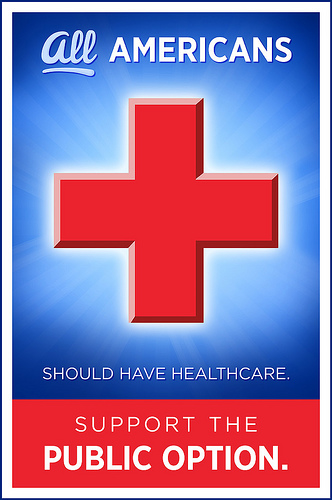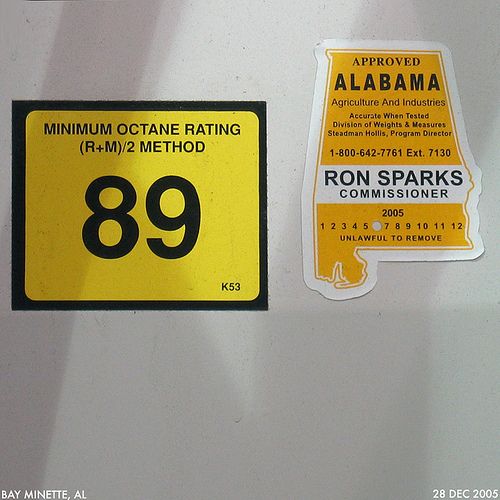I’m sorry not to have posted anything last week. I was getting over a bad cold and feel much better. Look for a post about the nanny state tomorrow!
4 Ways the GOP Doesn’t Want You to Think about Immigration
Today’s release of the Republican Party’s principles for immigration reform brought no surprises. As Lakoff and Wehling have pointed out, extreme conservatives frame the issue as one about law enforcement.
If it’s a law-enforcement issue, only law-enforcement policies make sense in response. Even saying no to these policies unconsciously reinforces this definition of the issue.
Because the phrase illegal immigration comes from the law-enforcement frame, it’s very important that Framologists avoid it. Also off limits are alien, criminal and amnesty.
So how should Framologists think and speak about it? Let me count the ways:
- For Christians, they are our brothers and sisters in Christ. Many biblical figures, including Jesus, migrate to other lands, and the Bible is full of exhortations to be kind to strangers and foreigners.
- For the secular-minded, they are neighbors and fellow human beings far from home that need our protection. We should treat them as we would want to be treated in their situation.
- We can turn the law-enforcement frame around. Many American employers violate labor laws by hiring people that don’t yet have a legal right to work in the USA. They often pay less than minimum wage and expose workers to dangerous working and/or living conditions. Therefore, these are illegal employers, and their employees are victims who deserve justice.
- Many immigrants are fleeing poverty, disaster, and death caused in part by failed American policies–especially treaties like NAFTA and the Drug War. Therefore, they are economic refugees that need our protection. Because we value strength, caring, and wisdom, Americans change policy when it isn’t working and defend the dignity and human rights of everyone within our borders–no matter how they got here.
The illegal employer and economic refugee ideas derive from Lakoff, though I don’t remember the source. Do you?
How do you think Framologists should frame immigration?
Giant Psychopathic Corporations with the Same Rights as You?
The legal status of corporations is in an interesting ferment. With recent corporate legal challenges to the Patient Protection Act’s requirement that health insurance cover birth control, the idea of corporate personhood is back in the news. For example, the owners of Hobby Lobby claim that the company has a religion.
Although its website has a Ministry Projects page, the corporation is a structure–a metaphorical building. Even though corporations can be established for religious purposes, their legal and physical structures do not themselves hold opinions, religious or otherwise. It’s the people that occupy that do, and their right to religious expression does deserve legal protection.
Like these corporate lawsuits, Mitt Romney’s famous statement that corporations are people blurs the distinction between corporations and human beings. (I do not believe that, as some have claimed, he meant that corporations ARE human beings, just that people inhabit corporations and benefit from them.)

Photo Credit: Austin Kleon via Compfight cc
This blurring is dangerous because, as the 2004 documentary The Corporation has argued, if corporations were people, many would be psychopaths. Giant psychopathic corporations with all the rights of citizens are the last thing we need!
Another important development is the dawn of benefit corporations (aka public benefit corporations). In states that have created this category of corporation, the corporation has a fiduciary commitment not only to its own bottom line but also to the community and the environment. Supporters of benefit corporations may call these the triple bottom line: profit, people, and planet.
When extreme conservatives talk of corporate rights and corporate personhood, I think Framologists should respond with corporate responsibility and the triple bottom line. When extremists say that corporations are persons before the law, we can point out that, although they do have the rights to advertise their products, enter contracts, own property, and sue, they are not and should be citizens. Citizenship is for Americans. Corporations created by American states have responsibilities to those states and to the people and natural world that make their business possible.
But what do you think?
Senators Duckspeak Health Insurance
After years of crying “repeal and replace,” prominent Republican senators have finally introduced a bill to do this. They call it the Patient Choice, Affordability, Responsibility and Empowerment Act, or CARE Act. According to NPR’s Julie Rovner, it would:
- Remove the duty of coverage,
- End the requirement that health insurance policies meet minimum standards of quality,
- Remove the fine on employers that did not offer employees health insurance,
- Eliminate taxes and fees intended to help Americans afford health insurance,
- Allow insurance companies to deny coverage of “pre-existing conditions” to people covered less than 18 months,
- Allow annual coverage limits to return,
- Offer less financial support to lower-income Americans in buying health insurance,
- Take away the health insurance of Americans that joined Medicaid thanks to its recent expansion, and
- Make employees pay income tax on 35% of their employer-based now-tax-free health insurance benefits on average.
In other words, it would make health insurance far less affordable for millions of Americans, reducing our insurance options–maybe to zero–and disempowering us. But the patient responsibility part of the name is accurate because it would be the individual’s problem.

Opponents of this bill should avoid using its deceptive official name. And please never call this heartless bill the CARE Act! The care it offers is to corporations, not Americans. Because the bill means the opposite of its name, the name is Orwellian language. George Lakoff says that extreme conservatives use Orwellian language when they know their position is weak.
What should Framologists call the bill instead? How about:
- The Corporations Win, Americans Lose Act
- The Insurance Companies Rule America Act
- The Taking Away Americans’ Health Insurance Act
- This Won’t Hurt a Bit Act
- The Increasing Inequality Act
- The You Can’t Afford Health Insurance Act
- Health Insurance Is for the One Percent Act
How do you think Framologists should frame this bill?
A Much-Needed Alternative to the Political Spectrum
A previous post argued that the political spectrum is too simple a metaphor to account for the full range of political ideologies and introduced the Political Compass as an alternative. The problem with this Political Compass for Americans is that it uses the word libertarian–the name of a political party–on one of its axes.

Source: This Is How You Should Talk to a Climate-Change Denier by Judith Shulevitz in The New Republic
But Yale psychology professor Dan Kahan offers a model that may better encompass political worldviews. Like the Political Compass, his involves two axes. They are individualist-communitarian and hierarchical-egalitarian. Writing in The New Republic, Judith Shulevitz diagrams the four quadrants with the things Kahan’s research found most threatening to people in each quadrant.
A problem with using Kahan’s model in political communication is that talk of individualist-hierarchical vs. communitarian-egalitarian just doesn’t roll off the tongue like left vs. right.
What if we used these axes: individual-first to community-first and top-down to side-by-side? How do you think they should be called? Which quadrant fits you best? (Mine is the egalitarian-communitarian or community-first and side-by-side quadrant.)
Riding the Bus: Back to Childhood or Forward to Transit?

Photo Credit: Seluryar via Compfight cc
Although America’s largest cities tend to have robust transit systems that include rail in addition to buses, the transit systems of smaller cities often use only buses. Therefore, residents of these cities often refer to the transit system as “the bus,” as in, “I’m not taking the bus! No way!”

Photo Credit: redjar via Compfight cc
Although this negative attitude comes partly from limitations that their city’s transit system may have, I think it’s also connotations of the phrase “the bus.” As I child, I took the bus to school. I got so tired of riding the bus that it was a relief to be able to walk to high school.
Many of my classmates, though, rode the bus until graduation. That made not having to ride the bus seem like a step toward adulthood. Riding “the bus” as a adult to get around town, then, may feel like a developmental step backward. We may unconsciously think that riding the bus is for kids.
Speaking of transit systems, including bus-only systems, as transit avoids this connotation. Transit is a characteristic of a big, grown-up city, and good transit systems are used by people of all ages and walks of life with pride.
Transit consultant Jarrett Walker, author of the Human Transit blog, offers many posts that discuss transit and language.
Framologists should dignify their city’s transit system by calling it transit rather than the bus. But do you think it makes a difference?
What Foes of Government Regulation Don’t Want You to Realize
As I’ve pointed out before, many government regulations are intended to protect the public from abuse or injury and to ensure ethical behavior by business. These protections help Us the People have confidence that we will be treated fairly and not ripped off.

For example, state officials test gas pumps and grocery-store scales to ensure that they are measuring accurately. This frees customers from worry about being charged for more product than we bought. It also frees business owners from worrying about charging for less than was sold and from having to convince potential customers that they are measuring honestly.
This confidence is in the interest of both businesses and their customers and allows markets to function. Therefore, the rules are confidence-creators or confidence-builders.
Therefore, when extreme conservatives denounce government regulation in the abstract, Framologists can reply that good government regulations are confidence-creators that markets need to function. We then can invite them to help us ensure that specific regulations really do help create confidence.
Government regulation -> Confidence creation
What do you think? How much confidence should I have in this reframe?
Martin Luther King Day: Should there be another holiday?
I’m of two minds about Martin Luther King Day. One mind says, “He was a great man, he deserves at least this much, and it’s an annual time to remember him.” The other mind replies, “What if America had a holiday that focused on the ideals for which he lived and died rather than on him?”
I (at least three minds now!) think both views are correct. And many King Day celebrations do acknowledge that King was part of a vast movement that began long before his appearance and that continues today. Unfortunately, there’s plenty of work to do, especially with recent weakening of affirmative action, voter-rights, and other civil-rights laws.
What if the USA had one of the following holidays:
- Citizenship Day
- Civil Rights Day
- Freedom Day
- Democracy Day
- Equality Day?
Of these, my favorites are Freedom Day and Equality Day. Should they be combined into Freedom and Equality Day? Such a holiday(s) might help ensure national discussion of these ideals and their reality or unreality in America each year.
Should America celebrate one of these holidays? If so, how would you do it?
A Better Way to Think of Welfare Recipients
Welfare recipients. Social Security recipients. Unemployment recipients. The word recipients inaccurately frames the people involved as passive supplicants.
The truth is that Americans participate in these and many other social insurance and assistance programs and should be acknowledged as participants. For example, the program today known as “welfare,” TANF, requires most participants to get and keep a job, go to college, or to participate in a job-training program. Far from being a handout, it’s hard work.
We pay Social Security premiums all our working lives, and when the checks start coming, that money is the benefit we have earned. And should we need unemployment insurance, we have earned that benefit by working for our employers. Furthermore, those receiving unemployment insurance checks generally are required to document applying for jobs each week.
We should recognize people’s participation and avoid calling them “recipients.” They are TANF participants, Social Security participants (or beneficiaries), and unemployment insurance participants (or beneficiaries).
For Social Security and unemployment insurance, the term beneficiaries also is appropriate because those are insurance programs.
But what do you think? Am I splitting hairs, or does the distinction matter?
Framing Markets, Part 2: Who Decides? What Do We Want?
How should progressives respond to the extreme conservative mantra,  ?
?
This slogan comes from the inaccurate view that markets justly mete rewards and punishments like the fundamentalist, strict-father version of God.
As noted before, from a progressive perspective, markets are tools to be used by Us the People for our benefit. If we were to let markets make important policy decisions for us, we would be like Don Quixote on his first sally. Seeking adventure, the would-be knight rode out of town and then let his horse decide where to go. The horse returned him to his barn, of course!
But at least his horse got him safely home. If we abandon ourselves to the judgment of “markets” without clear, consistently-enforced expectations for fair play and fair treatment of workers, customers, communities, animals, and the planet, the corporations that tend to dominate markets could be far crueler.
The effect of letting the market decide too often means that the two or three (sometimes only one) companies that dominate an industry decide for us what our options are. Insisting that the government, as the people’s servant, set rules to structure markets for our benefit, increases confidence in business and helps markets function in our interest.
Therefore, when extreme conservatives say to let “the market” decide, progressives should reply,
But what do you think?